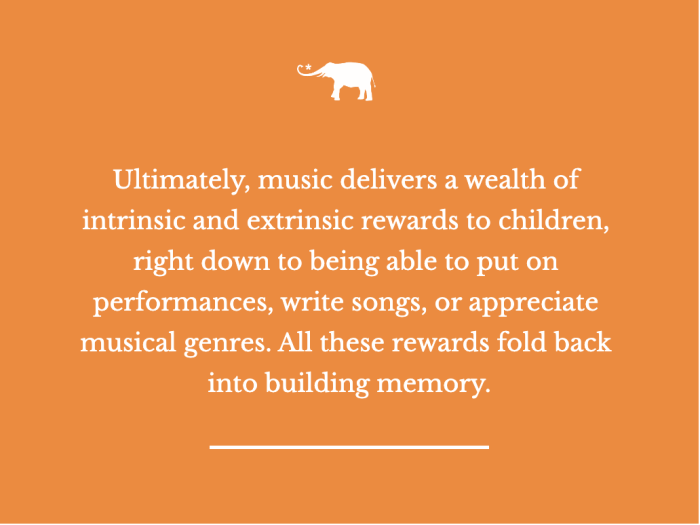We rely on working memory to prompt fast retrieval of useful information every day; we just don’t realize it. Three teaspoons are equal to one tablespoon. Twenty percent off $10 is $8. The difference between “their,” “they’re,” and “there.” Sure, we could ask Alexa for these facts, but we don’t because they’re ingrained in our brains.
The ability to memorize begins at birth. Babies recognize familiar faces, smells, and behaviors. As they grow, they depend on their working memory to succeed. It’s impossible to move up the math ladder in school or write engaging essays without being able to recall basic facts about numbers, grammar, spelling, and so much more.
But it’s easy to take memory for granted. As parents, we can’t afford to be absent-minded if we want our kids to have legs up in school and life. Case in point: A 2008 study from Durham University discovered that 10% of school-age children didn’t have strong working memories. As a result, their learning was severely impacted.
However, their teachers didn’t often attribute learning issues to poor working memory, but rather low intelligence or inattentiveness. To avoid this kind of pigeonholing and improve their memorization skills, we need to give our children the tool to boost their working memory: music.
The Unparalleled Connection Between Memory and Music
Why can you remember every word from a song you learned 40 years ago that you haven’t sung or heard in decades? Put simply, music activates and excites the cognitive processes in the brain. A study from the University of Zurich suggested that part of music’s power is its ability to join memory and emotion. We all know that emotional experiences tend to imprint themselves on our brains. It’s why we remember the date of a life-changing event but have trouble remembering what we ate for dinner two days ago. Researchers explored this connection by using singing to help patients recovering from left-brain trauma that affected their speaking abilities. Singing, a skill that comes from the right brain, allowed some patients to sing-speak their thoughts and then eventually speak more normally.
Learning music has other rewards aside from evoking emotions. It requires learning a new notation program: whole notes, quarter notes, rhythm, meter, etc. Plus, music encourages self- discipline and achievement, especially if the listener wants to move to a level of fluency as a musician or singer. Ultimately, music delivers a wealth of intrinsic and extrinsic rewards to children, right down to being able to put on performances, write songs, or appreciate musical genres. All these rewards fold back into building memory.
Don’t wait for your children to discover music on their own or at school. In the aftermath of the coronavirus, I’ve been advising parents worried about academic gaps to supplement their kids’ educational activities with music to flex their working memories. Below are some ways to leverage the value of music to strengthen your children’s memorization skills:
1. Prioritize music at home.
When you make music a priority, your kids will be surrounded by it. You can make it a lot of fun, especially for younger children. Learn songs and sing them often with your children, such as those silly nursery rhymes you learned when you were little. Get the family together and put on a live performance. Make the theme of the concert educational, and not only will your kids learn through music, but they’ll also get a fun family memory to enjoy for the rest of their lives.
2. Use games.
Games are an excellent way to use music to help with memory. You can play “Name That Tune” on car trips and let your little ones guess the song. Challenge your kids to stump you with songs you might not remember or even know. Are they having trouble in science class? Write a song using the study materials for them to memorize, and your children will be singing about elementary sciences to their children in the future.
3. Teach them an instrument.
As your children get a bit older, keep looking for ways to show the importance of music. When my sons were seven, they started taking piano lessons. From that point forward, the rule in our house was that they had to practice 30 minutes a day, six days a week. By the time they were high schoolers, they were practicing an hour a day and becoming fine pianists. As adults, they reminisce about the value and lessons they gained from practicing music, including learning how to minimize memory lapses.
4. Invest in a music program.
There are so many music programs: The Kodály method emphasizes singing, the Suzuki method focuses on developing listening skills, and the Dalcroze method centers around movement (the list could go on). You have more music-related options at your disposal than you might think. Your job is to look for both free and fee-based experiences. Ask school administrators and teachers for advice and recommendations. Check out your local neighborhood center. If your family has the resources for private sessions, get your children signed up right away.
Music has been around since the beginning of time. Though music styles might change over the years, the benefits of learning music to improve memory will never become dated. So, what are you waiting for? Music is only a saucepan and wooden spoon away.












Read 0 comments and reply